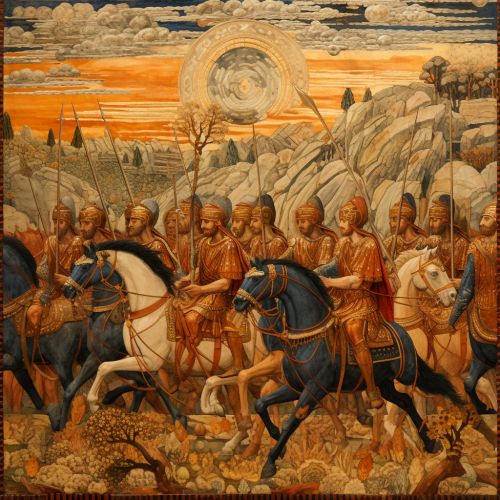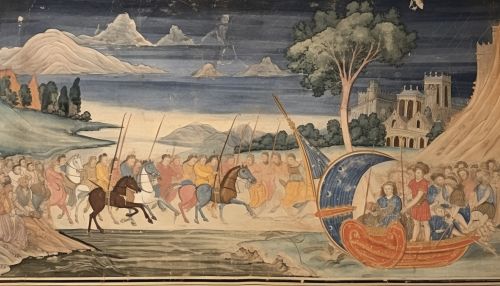Iliad
Origins and Authorship
The Iliad is an epic poem from the ancient Greek period, traditionally attributed to the poet Homer. The authorship and dating of the Iliad have been the subject of ongoing debate among scholars. The consensus is that it was composed in the 8th century BC, but there is disagreement about whether it is the work of a single author or a collective effort passed down through oral tradition.
Structure and Content
The Iliad consists of 24 books and approximately 15,700 lines of dactylic hexameter verse. The narrative focuses on a brief period during the tenth and final year of the Trojan War. However, it alludes to many other events in the war and in Greek mythology, providing a comprehensive picture of the heroic age.


The central figure of the Iliad is Achilles, the greatest warrior of the Greeks. The poem begins with the wrath of Achilles, which is ignited when Agamemnon, the leader of the Greek forces, takes a captive woman, Briseis, from him. Achilles withdraws from the battle, leading to a series of disasters for the Greeks. The narrative follows the consequences of this conflict, including the death of Achilles' close friend Patroclus, and culminates in the hero's revenge against Hector, the Trojan prince who killed Patroclus.
Themes and Motifs
The Iliad explores numerous themes, including the nature of heroism, the relationship between humans and gods, the destructiveness of anger, and the fleeting nature of life. The poem also contains many recurring motifs, such as the concept of kleos (glory won through great deeds), the role of fate, and the contrast between civilization and barbarity.
Influence and Legacy
The Iliad has had a profound influence on Western literature and culture. It has been translated into many languages and adapted into various forms, including plays, films, and novels. It has also inspired many works of art and has been a key source for the study of ancient Greek history and mythology.
